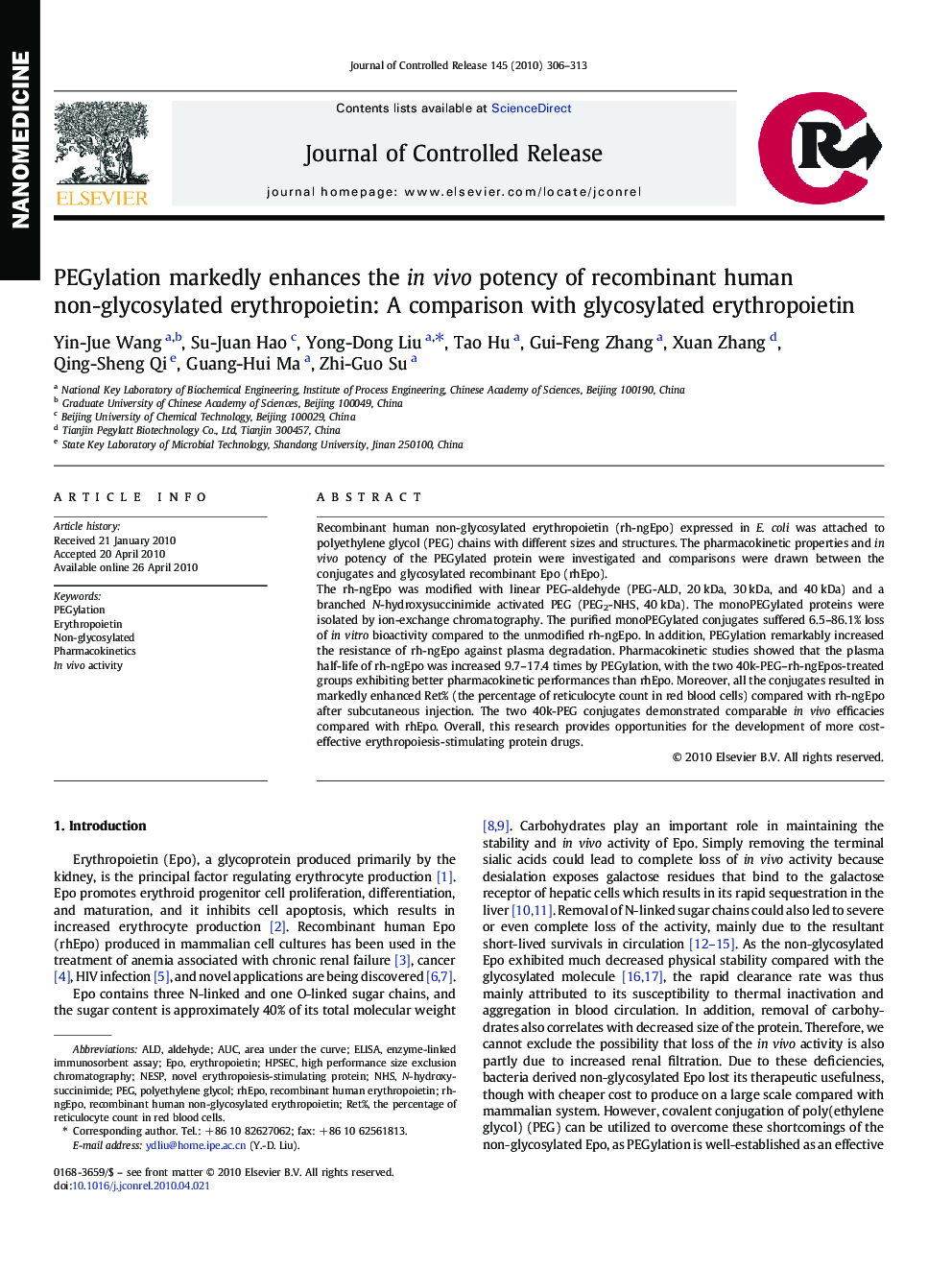| Article ID | Journal | Published Year | Pages | File Type |
|---|---|---|---|---|
| 1425549 | Journal of Controlled Release | 2010 | 8 Pages |
Recombinant human non-glycosylated erythropoietin (rh-ngEpo) expressed in E. coli was attached to polyethylene glycol (PEG) chains with different sizes and structures. The pharmacokinetic properties and in vivo potency of the PEGylated protein were investigated and comparisons were drawn between the conjugates and glycosylated recombinant Epo (rhEpo).The rh-ngEpo was modified with linear PEG-aldehyde (PEG-ALD, 20 kDa, 30 kDa, and 40 kDa) and a branched N-hydroxysuccinimide activated PEG (PEG2-NHS, 40 kDa). The monoPEGylated proteins were isolated by ion-exchange chromatography. The purified monoPEGylated conjugates suffered 6.5–86.1% loss of in vitro bioactivity compared to the unmodified rh-ngEpo. In addition, PEGylation remarkably increased the resistance of rh-ngEpo against plasma degradation. Pharmacokinetic studies showed that the plasma half-life of rh-ngEpo was increased 9.7–17.4 times by PEGylation, with the two 40k-PEG–rh-ngEpos-treated groups exhibiting better pharmacokinetic performances than rhEpo. Moreover, all the conjugates resulted in markedly enhanced Ret% (the percentage of reticulocyte count in red blood cells) compared with rh-ngEpo after subcutaneous injection. The two 40k-PEG conjugates demonstrated comparable in vivo efficacies compared with rhEpo. Overall, this research provides opportunities for the development of more cost-effective erythropoiesis-stimulating protein drugs.
Graphical abstractFigure optionsDownload full-size imageDownload as PowerPoint slide
